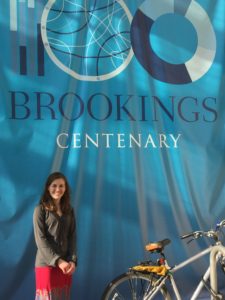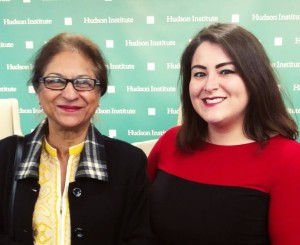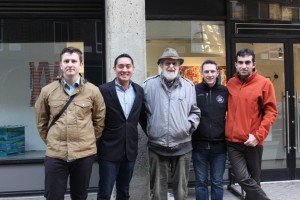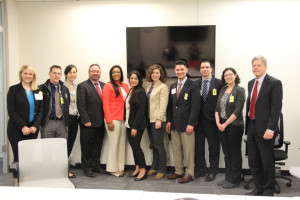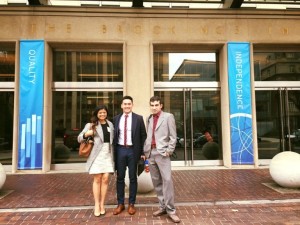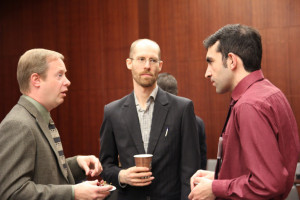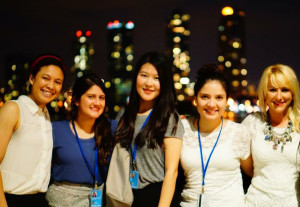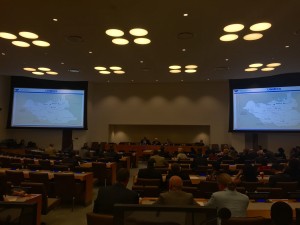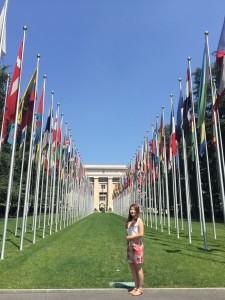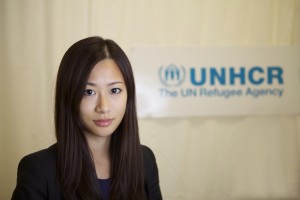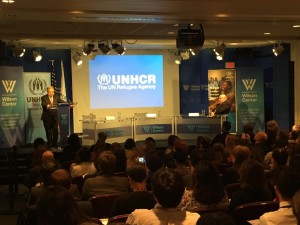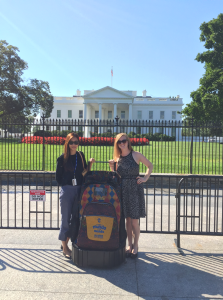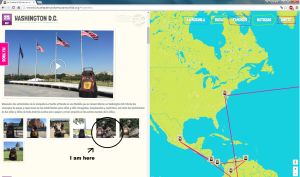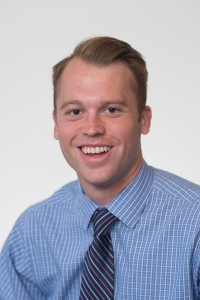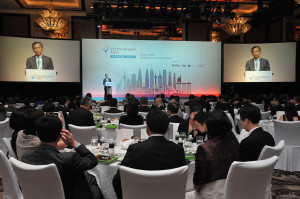Deborah Baldwin is a recent graduate of the Public Diplomacy program. She earned a joint Master of Arts in International Relations and a Master of Science in Public Relations from the prestigious Maxwell and Newhouse schools.
From introducing me to new tools and software, giving me opportunities to perform and learn more about research, and allowing me to gain hands-on experience in engaging with their target audience, The Brookings Institution’s communications department provided me with an unforgettable internship experience. I interned this past spring semester with the organization’s social media team, which was a great experience for me being a Public Diplomacy student with an interest in research. I got to not only read much of the great research published by the institution, but I also had the opportunity to learn how to best market it to their online public audiences through tweets, Facebook posts and Medium. I would then gauge how the audience interacted to it. In addition to learning how to market others’ research, I got to perform some of my own, writing reports to help determine the direction of the department’s iTunes U channel and giving recommendations on whether and how they should engage with their public over Snapchat.
The communications department was also open to letting interns get involved in other areas and meet people working outside of their own teams. When the events intern took a new job and left, I filled in for him, checking in guests at the events, helping facilitate discussions with panelists (one of whom was Deputy Secretary of State Anthony Blinken), and learning to use attendance tracking tools to add to my resume. I also made some really great friends with whom to try out the local restaurants.
Brookings has some awesome perks, including a great cafeteria with a specialty coffee machine, a library that not only allows interns to check out an unlimited number of books for up to four weeks, but is also staffed with the sweetest librarians you’ll ever meet and a bookshelf of giveaway books, and events that are free and open to the public. I frequented all of these things, especially the coffee machine. Not only did I see Anthony Blinken at a Brookings event, but I also got to see Gayle Smith, executive director of USAID, along with Justice Stephen Breyer, Turkish President Erdogan, and Sen. John McCain. I even got to see what may have been the largest protest in the history of The Brookings Institution, conducted by Amnesty International when President Erdogan came. From a public relations perspective, it was a good experience to see how an audience might react to a decision made by your organization with which they might not agree, so I got to take advantage of a learning opportunity by going outside and talking to protestors.
This internship allowed me to gain experience in digital communications and relationship building with organizational public audiences while also giving me insight into writing research and helping me to make new contacts in the policy sector. I especially enjoyed getting to know the faces behind the Brookings social media accounts, the YouTube channels and the Brookings Cafeteria Podcast, as well as some of the researchers of the number one research institution in the world.
